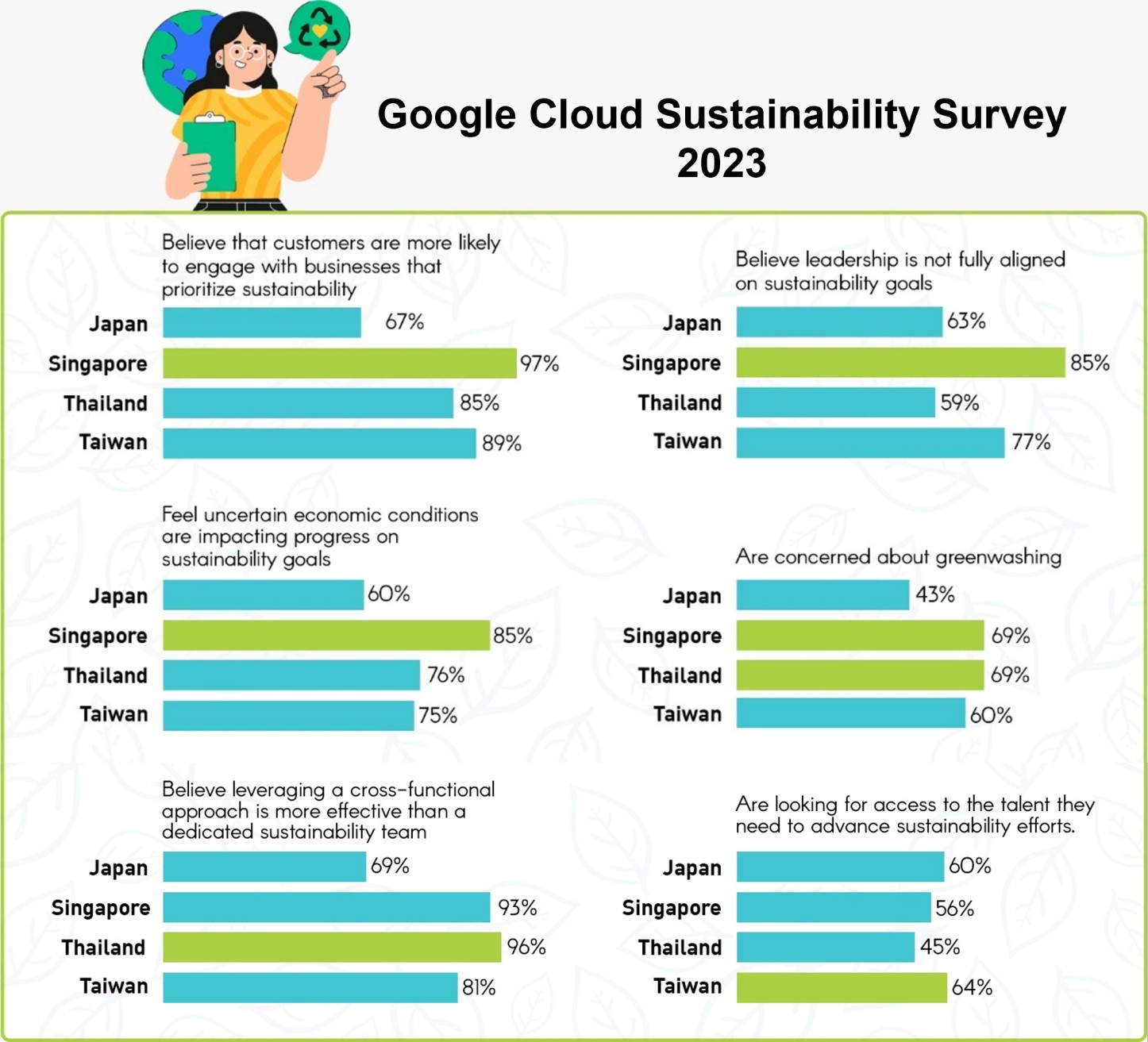Even as the Asia-Pacific region faces economic challenges, businesses in Singapore and Thailand are leading the charge in prioritising environmental, social, and governance (ESG) initiatives. In Japan, ESG ranks as the fifth organisational priority while Taiwan follows the global trend, placing ESG as the third priority. Despite these differences, the four Asian markets collectively recognise the importance of sustainable brands, with a majority of respondents acknowledging that customers are more likely to engage with businesses that prioritise sustainability.
These are the findings of a CXO Sustainability Survey, commissioned by Google Cloud and conducted by The Harris Poll which surveyed 1,476 top-level executives in 16 markets, including Japan, Singapore, Taiwan and Thailand. The findings revealed a regional market grappling with varying degrees of ESG prioritisation as well as the challenges of integrating sustainability initiatives into their operations.
Apart from alignment that is needed within the C-suite who tend to make sustainability-related decisions on behalf of their companies, the survey highlighted that executives across the four Asian markets believed an agile approach and internal capability building are crucial elements for success.
So is the adoption of a cross-functional approach in managing and deploying sustainability programmes rather than having dedicated sustainability teams. The majority, said the survey findings, was also looking to find the right talent to advance their sustainability efforts.
Among the challenges faced in sustainability deployments were the lack of leadership alignment on sustainability-related decisions and the economic constraints impacting their ability to achieve progress on sustainability goals. Additionally, “greenwashing” – which involves making unsubstantiated environmental claims - has emerged as a significant concern among executives, particularly in Singapore, Taiwan, and Thailand. Most respondents believed greenwashing is accidental, underscoring the need for data-driven systems that provide actionable insights for implementing and accurately measuring sustainability initiatives.

Karan Bajwa, vice-president, Asia-Pacific, Google Cloud said the current poor economic sentiment as well as revenue pressures were the key reasons for organisations being unable to meet their sustainability goals.
He hoped that intelligent and data-driven tools would be able to help quantify the tangible impact and return on investment from embedding sustainability into a company’s operations and business model.
The survey findings also indicated that existing structures and skilling programmes need to be re-assessed if organisations want to do more with sustainability.
Naveen K. is a freelance writer



Tell us about your thoughtsWrite message